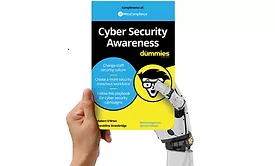Security Leadership and Management
The Rise of Extremism
The rapid growth of extremist groups provides many challenges for enterprise security.
June 8, 2020
Continuous Monitoring of Employees Gaining Traction
Background checks are out; continuous monitoring is in.
June 5, 2020
Sign-up to receive top management & result-driven techniques in the industry.
Join over 20,000+ industry leaders who receive our premium content.
SIGN UP TODAY!Copyright ©2026. All Rights Reserved BNP Media.
Design, CMS, Hosting & Web Development :: ePublishing














